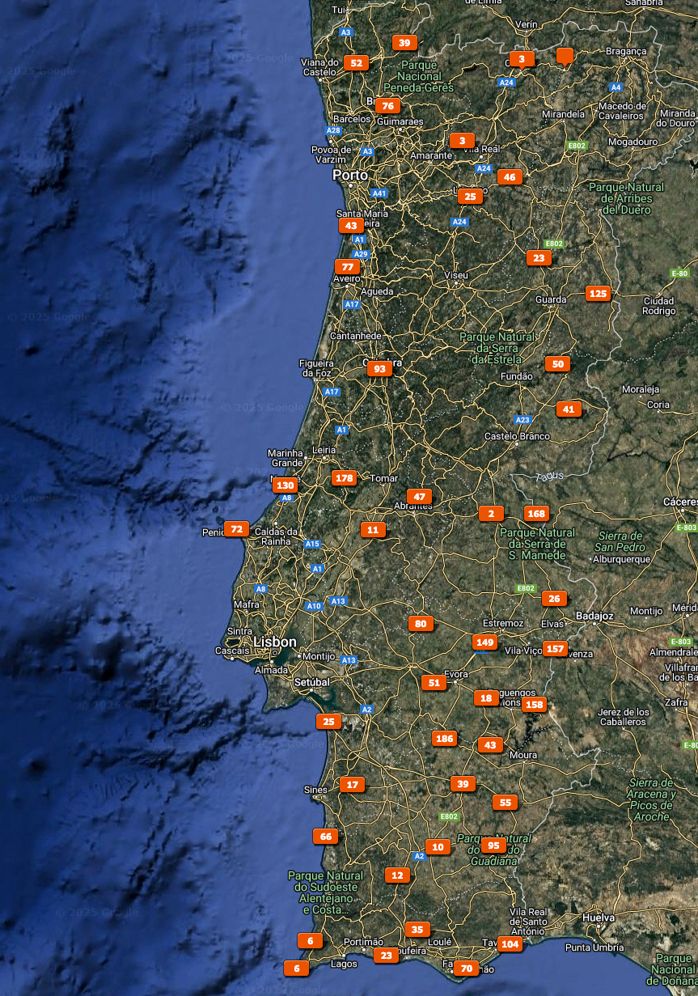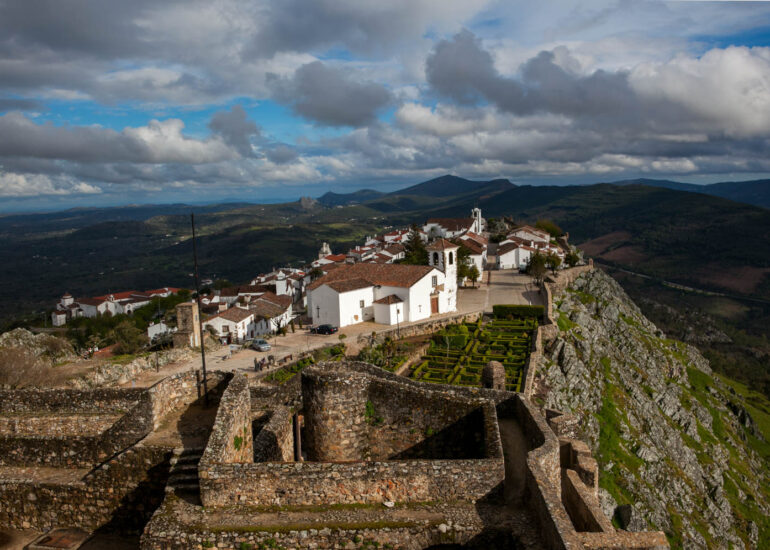Portugal
Country Series
Portugal
This is the third publication in our country series. Our intention is to share with you in one page our relation with the pertinent country.
Our relationship with Portugal
We both became interested in Portugal when, on 25 April 1974, the Carnation Revolution broke out in Portugal, transferring Portugal into a democratic country. In 1976, the first democratic elections were held, and the sympathetic Mário Soares became prime minister. By chance, Yvonne was there when Soares arrived by train at The Hague Hollands Spoor in May 1974.
But it was not until 1989 that we visited Portugal for the first time. That’s where our love for Portugal started. Love at first sight, not surprising as you start your holiday in the beautiful city of Lisbon. The music, the Fado, also contributed to our love for Portugal. During that holiday we visited Monserrate, Obidos, Aveiro, the Algarve, Portinho da Arrábida and we ended up back in Lisbon.
On our return flight to the Netherlands our plane got very serious technical problems. We took off twice and both times we had to return to Lisbon. The plane was heavily shaking in the air and lost height. The fear of flying that ensued affected me in my work for several years.
In 1991 we drove to Portugal by car and spent our holidays mainly in the Algarve and Lisbon. There are not many photos of both holidays and to be honest the quality of these photos is just not good.
In the spring of 2010, we made a tour in the Alentejo. There was an explosion of flowers and the early spring light was beautiful. We have come to love the Alentejo and in the seasons in which we travel it is very quiet, certainly compared with the touristic Algarve. Wide vistas, green hills, vineyards and cork and olive trees as far as the eye can see. Characteristic towns such as Marvão, Evora, Elvas and Monsaraz. The people are friendly and the food delicious.
In 2016 Adriaan retired and in the same year we bought our first buscamper. In 2019 we made our first trip to Portugal with our camper followed by extensive camper trips in 2023, 2024 and 2025. As can be seen on the map below we have explored Portugal from north to south and from east to west, but there are still areas and cities that we would like to visit or revisit.
Of all our campertrips we have posted travelogues in our BLOG ( please click), with the routes that we followed and the highlights of these trips. In the travel reports you will also find links to the photo’s that we made when traveling.
Map of photo locations
On the map, the orange icons indicate the places where we have taken our photo’s during our travels with the buscamper. All photo’s are uploaded on our photo website SmugMug.
Our photo galleries
Here below we have links to our Portuguese photo galleries, that we have published on SmugMug. By clicking on the name of the region you will be directed to the pertinent gallery on SmugMug.
Portuguese music
During our first visit to Portugal we went to a restaurant in Lisbon where local singers performed Fado music. This music came straight into our hearts. Our CD collection, now, consists largely of traditional Greek and Portuguese music.
Fado, literally “fate”, is a genre that has existed since at least the 1820s—and possibly for some time. The style is characterized by the melancholic tones and texts, which often tell about the sea or about the life of the poor. Fado is also strongly associated with the Portuguese word saudade, a word that is difficult to translate. Saudade has to do with homesickness and a desire for the past or for better times.
There are two major currents within the fado, namely the fado from Lisbon and the fado from Coimbra. The fado from Lisbon is more popular, but the one from Coimbra is perceived as more refined. Another important difference is that after a fado from Lisbon you clap your hands to applaud, but with a fado from Coimbra you must scrape your throat.
We went to concerts of Cristina Branco and Mariza in the Netherlands. When we lived in Athens we went to a performance of Madredeus. Madredeus had made an unforgettable impression on us in the Wim Wenders’ film Lisbon Story. The concert also became unforgettable for us. We saw Mísia performing with Christina Pluhar, also in Athens.
We also want to mention Cesária Évora of Cape Verdie who had so many Portuguese influences in her music.
Of course, our CD collection is not missing: Amália Rodrigues, the most important and influential fado singer in history.

Fado & Fadistas









